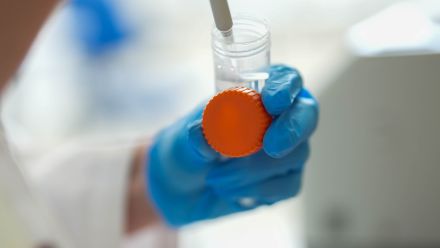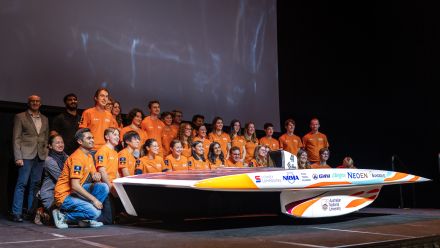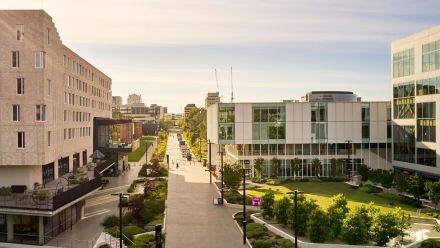Accelerating professional development
My knowledge of accelerators increased immensely in just two weeks. Upon my return, I was inspired to continue to improve myself and my contributions to keep the department at the forefront of its nuclear physics research activities.
The Heavy Ion Accelerator Facility (HIAF) is one of the most important pieces of research infrastructure at ANU. It supports Australia's only experimental nuclear physics program, as well as a broad spectrum of other work, including creating and characterising innovative materials, resource and energy exploration, investigating climate change, and archaeological and heritage studies.
The HIAF is also one of the few facilities left where 'adventurous' experiments - those that hold promise, but have no clear guarantee of success - can be carried out.
The HIAF Endowment Fund was created in 2012 by Professor David Hinde, Head of the ANU Department of Nuclear Physics, Professor Keith Fifield, Director of the HIAF and Professor Mahananda Dasgupta, an Australian Research Council Australian Laureate fellow.
Initially the three researchers wanted to offer technical staff at the ANU Department of Nuclear Physics career advancement opportunities that would not otherwise be available. However, the generosity of donors has now meant that the Endowment's purpose can be expanded to support other initiatives of the department in addition to staff development.
Dr Peter Linardakis was the first recipient of the HIAF Endowment Career Development Award. Peter is a technical officer at the ANU Department of Nuclear Physics and said that the Award helped him gain insight to the world of accelerators.
"The award allowed me to travel to a conference in Paris and a workshop in Woods Hole, Massachusetts. These opportunities gave context to the ANU HIAF in the world of accelerators and allowed me to better appreciate our achievements. I was able to involve myself in the international particle accelerator community and build a network of contacts from large organisations."
Peter also said the Award expanded his knowledge, helping him to contribute further to his department's work.
"My knowledge of accelerators increased immensely in just two weeks. Upon my return, I was inspired to continue to improve myself and my contributions to keep the department at the forefront of its nuclear physics research activities."
Most importantly, Peter is grateful for the way professional staff are valued at the ANU Research School of Physics and Engineering (RSPE).
"It is fulfilling that professional staff within RSPE are recognised for their role in the research that is performed here."


